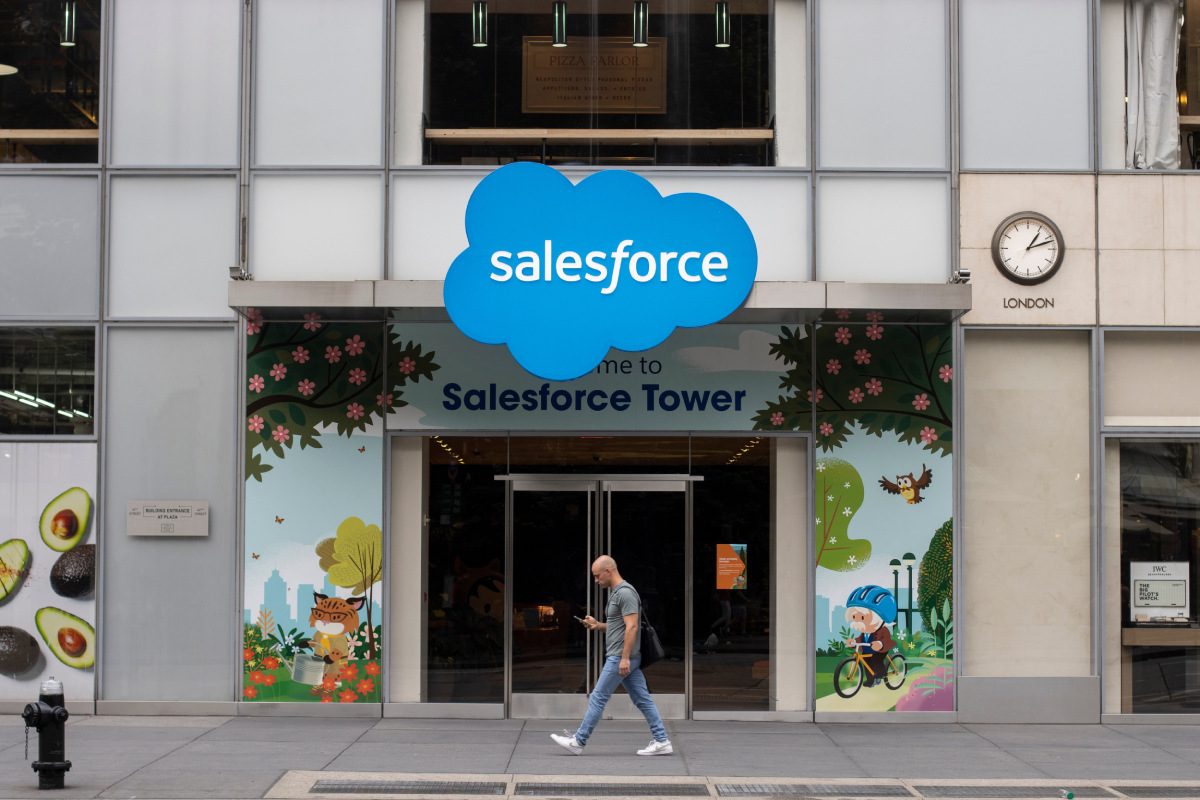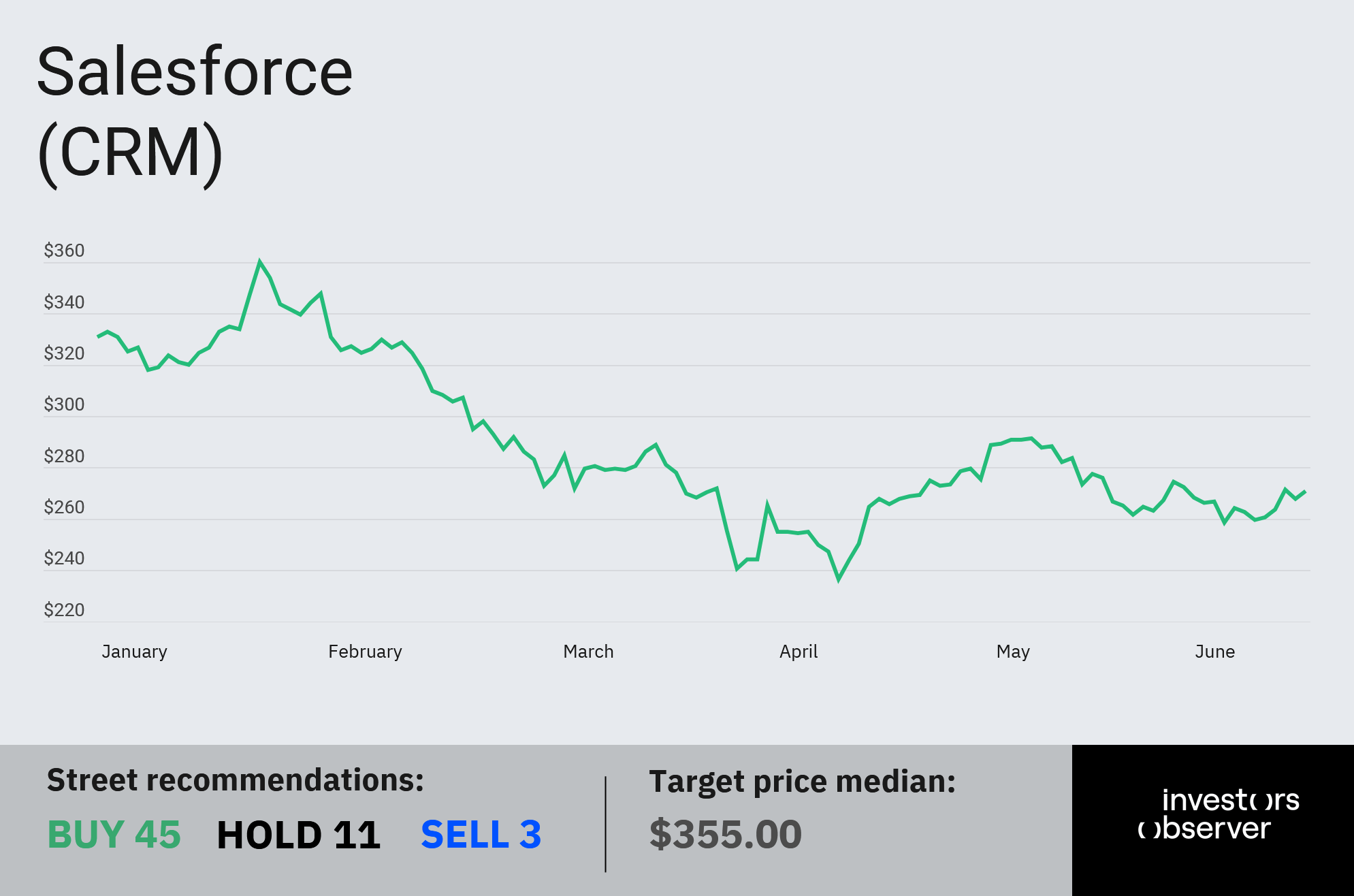
The tech world – especially as it exists in Silicon Valley – has for years been trying to ease people’s concerns that artificial intelligence will eventually replace people’s jobs across nearly every industry.
The idea that Silicon Valley has promoted is that AI would work beside people, acting as a highly intelligent assistant, rather than as a tool that would be used as a replacement for the human workforce.
This narrative could be seen with the release this week of Salesforce’s (CRM) Agentforce 3, the latest upgrade to its agentic AI platform that allows businesses to build and deploy autonomous AI agents to automate tasks and improve efficiency across various departments.
The tasks that the AI agents can handle include customer service, sales development, employee support and more.
Salesforce describes Agentforce 3 as a “digital labor platform” which “enhances human productivity.”
“Agentforce 3 will redefine how humans and AI agents work together — driving breakthrough levels of productivity, efficiency, and business transformation,” Adam Evans, EVP & GM of Salesforce AI, said in a statement.
But in an interview on Bloomberg’s The Circuit with Emily Chang, Salesforce CEO Marc Benioff described how his company is utilizing AI in terms that make it sound less like something that “enhances human productivity”, and more like a tool that is replacing human workers.
“AI is doing 30% to 50% of the work at Salesforce now,” Benioff said.
This work includes software engineering and customer service, he noted.
Although Benioff couched it by saying that AI allows humans to “move on to do higher-value work,” he has also said that AI is allowing Salesforce to hire fewer employees, including software engineers and customer service agents.
However, Salesforce CFO Robin Washington said on a call with analysts that about “500 customer service workers would be redeployed to different roles within the company this year, saving $50 million,” as Bloomberg reported.
Enterprise adoption of agentic AI expected to soar
A recent study found that the enterprise agentic AI market is expected to grow from $13.81 billion in 2025 to $140.80 billion by 2032, at a compound annual growth rate (CAGR) of 39.3%.
IT and service management are the largest segments to be using AI agents this year due to “high volume, repeatability, and complexity of tasks well-suited for autonomous handling.”
And a number of big corporate names are embracing Agentforce: Customers of the platform will be able to access plug-and-play services from over 30 Salesforce partners including AWS (AMZN), Box (BOX), Cisco (CSCO), Google Cloud (GOOG), IBM (IBM), Notion, PayPal (PYPL) and Stripe.
Meanwhile, PepsiCo (PEP) said this week that it would be utilizing Agentforce “to manage key functions, enhancing customer support and operational efficiency, while empowering sales teams to focus on strategic growth and deeper engagement with retailers.”
The company said that it is one of the first major food and beverage companies to deploy Agentforce at scale, calling it “an important step in PepsiCo's AI roadmap.”
"AI is reshaping our business in ways that were once unimaginable," PepsiCo chairman and CEO Ramon Laguarta said in a statement. "This collaboration with Salesforce is another step toward a more connected and adaptive PepsiCo – deploying AI to unlock smarter and faster decision-making, fuel innovation, and power sustainable growth."
Salesforce’s shares are down 19.5% YTD.

Your email address will not be published. Required fields are markedmarked